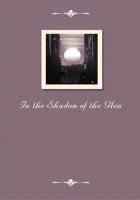In the present century Regis published at Leipsic, from 1831 to 1841, with copious notes, a close and faithful translation. The first one cannot be so described, that of Johann Fischart, a native of Mainz or Strasburg, who died in 1614. He was a Protestant controversialist, and a satirist of fantastic and abundant imagination. In 1575 appeared his translation of Rabelais' first book, and in 1590 he published the comic catalogue of the library of Saint Victor, borrowed from the second book. It is not a translation, but a recast in the boldest style, full of alterations and of exaggerations, both as regards the coarse expressions which he took upon himself to develop and to add to, and in the attacks on the Roman Catholic Church. According to Jean Paul Richter, Fischart is much superior to Rabelais in style and in the fruitfulness of his ideas, and his equal in erudition and in the invention of new expressions after the manner of Aristophanes. He is sure that his work was successful, because it was often reprinted during his lifetime; but this enthusiasm of Jean Paul would hardly carry conviction in France. Who treads in another's footprints must follow in the rear. Instead of a creator, he is but an imitator. Those who take the ideas of others to modify them, and make of them creations of their own, like Shakespeare in England, Moliere and La Fontaine in France, may be superior to those who have served them with suggestions; but then the new works must be altogether different, must exist by themselves.
Shakespeare and the others, when they imitated, may be said always to have destroyed their models. These copyists, if we call them so, created such works of genius that the only pity is they are so rare. This is not the case with Fischart, but it would be none the less curious were some one thoroughly familiar with German to translate Fischart for us, or at least, by long extracts from him, give an idea of the vagaries of German taste when it thought it could do better than Rabelais. It is dangerous to tamper with so great a work, and he who does so runs a great risk of burning his fingers.
England has been less daring, and her modesty and discretion have brought her success. But, before speaking of Urquhart's translation, it is but right to mention the English-French Dictionary of Randle Cotgrave, the first edition of which dates from 1611. It is in every way exceedingly valuable, and superior to that of Nicot, because instead of keeping to the plane of classic and Latin French, it showed an acquaintance with and mastery of the popular tongue as well as of the written and learned language. As a foreigner, Cotgrave is a little behind in his information.
He is not aware of all the changes and novelties of the passing fashion.
The Pleiad School he evidently knew nothing of, but kept to the writers of the fifteenth and the first half of the sixteenth century. Thus words out of Rabelais, which he always translates with admirable skill, are frequent, and he attaches to them their author's name. So Rabelais had already crossed the Channel, and was read in his own tongue. Somewhat later, during the full sway of the Commonwealth--and Maitre Alcofribas Nasier must have been a surprising apparition in the midst of Puritan severity--Captain Urquhart undertook to translate him and to naturalize him completely in England.
Thomas Urquhart belonged to a very old family of good standing in the North of Scotland. After studying in Aberdeen he travelled in France, Spain, and Italy, where his sword was as active as that intelligent curiosity of his which is evidenced by his familiarity with three languages and the large library which he brought back, according to his own account, from sixteen countries he had visited.
On his return to England he entered the service of Charles I., who knighted him in 1641. Next year, after the death of his father, he went to Scotland to set his family affairs in order, and to redeem his house in Cromarty.
But, in spite of another sojourn in foreign lands, his efforts to free himself from pecuniary embarrassments were unavailing. At the king's death his Scottish loyalty caused him to side with those who opposed the Parliament. Formally proscribed in 1649, taken prisoner at the defeat of Worcester in 1651, stripped of all his belongings, he was brought to London, but was released on parole at Cromwell's recommendation. After receiving permission to spend five months in Scotland to try once more to settle his affairs, he came back to London to escape from his creditors.
And there he must have died, though the date of his death is unknown. It probably took place after 1653, the date of the publication of the two first books, and after having written the translation of the third, which was not printed from his manuscript till the end of the seventeenth century.
His life was therefore not without its troubles, and literary activity must have been almost his only consolation. His writings reveal him as the strangest character, fantastic, and full of a ***** vanity, which, even at the time he was translating the genealogy of Gargantua--surely well calculated to cure any pondering on his own--caused him to trace his unbroken descent from Adam, and to state that his family name was derived from his ancestor Esormon, Prince of Achaia, 2139 B.C., who was surnamed (Greek), that is to say the Fortunate and the Well-beloved. A Gascon could not have surpassed this.















